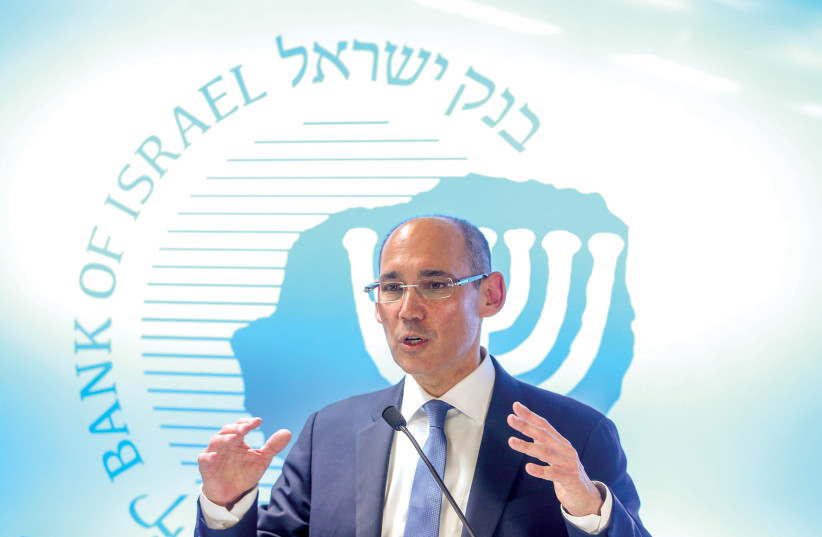The Bank of Israel is making broad efforts to keep the shekel from depreciating further as it manages market instability as a result of the ongoing conflict with Hamas in Gaza.
During a meeting with financial forecasters on Tuesday, Bank of Israel Deputy Governor Andrew Abir elaborated upon the Bank’s foreign exchange sale program initiated a few days ago. Abir underscored several key points aimed at providing stability in the markets and ensuring economic certainty in these challenging times:
Market stabilization as priority
The central theme of the Bank of Israel's policy is to stabilize the markets and establish maximum certainty for the economy and the public. The bank has taken proactive measures by utilizing “a dedicated tool to stabilize the foreign exchange market.” The outcome has not only contributed to steadying the foreign exchange market but has also had a calming effect on other markets. The Bank's goal is to ensure that other monetary policy tools do not hinder the immediate aim of market stability. Governor Amir Yaron stressed this sentiment earlier in the week during his speech for the G30 group, stating, "The main inflationary risk in the past nine months, and now even more so, is depreciation of the shekel."
Relief measures for households and businesses
Simultaneously, the Bank of Israel is committed to significantly easing the financial burden on both households and businesses. To provide greater certainty during these turbulent times, the bank has put forth a comprehensive plan to defer loan repayments for the entire population, with a particular focus on those who have been adversely affected. Importantly, this deferment will be free from any interest or fees, thus alleviating the "interest weight" on the public. These efforts run parallel to other leniencies being pursued by the government, which aims to support households and businesses facing hardship.
Ongoing vigilance and flexibility
The Bank of Israel maintains a vigilant stance, constantly monitoring developments in the economic landscape. The bank is committed to deploying the appropriate policy tools as necessary to navigate the ever-changing financial environment.

Last week, two days after the tragic massacre that took place in southern Israel on October 7, the Bank of Israel initiated a plan to sell up to $30 billion from its foreign currency reserves to support the Israeli shekel amid the conflict with Hamas in Gaza. This move aims to stabilize the shekel's exchange rate, which is under pressure due to depreciation and nearing NIS 4/$.
“We will use all the tools at our disposal in order to mitigate the effects of the security crisis,” said Golan Benita, head of the Bank of Israel's Markets Department, noting that the intervention was triggered by unprecedented security conditions and is intended to prevent the market from overreacting.
"We are still at the beginning of the event and it is difficult for us to assess where the security situation will take us and also what the impact on the markets will be,” he said. “The impact on the markets is indeed sharp, but it has not reached extremes."
